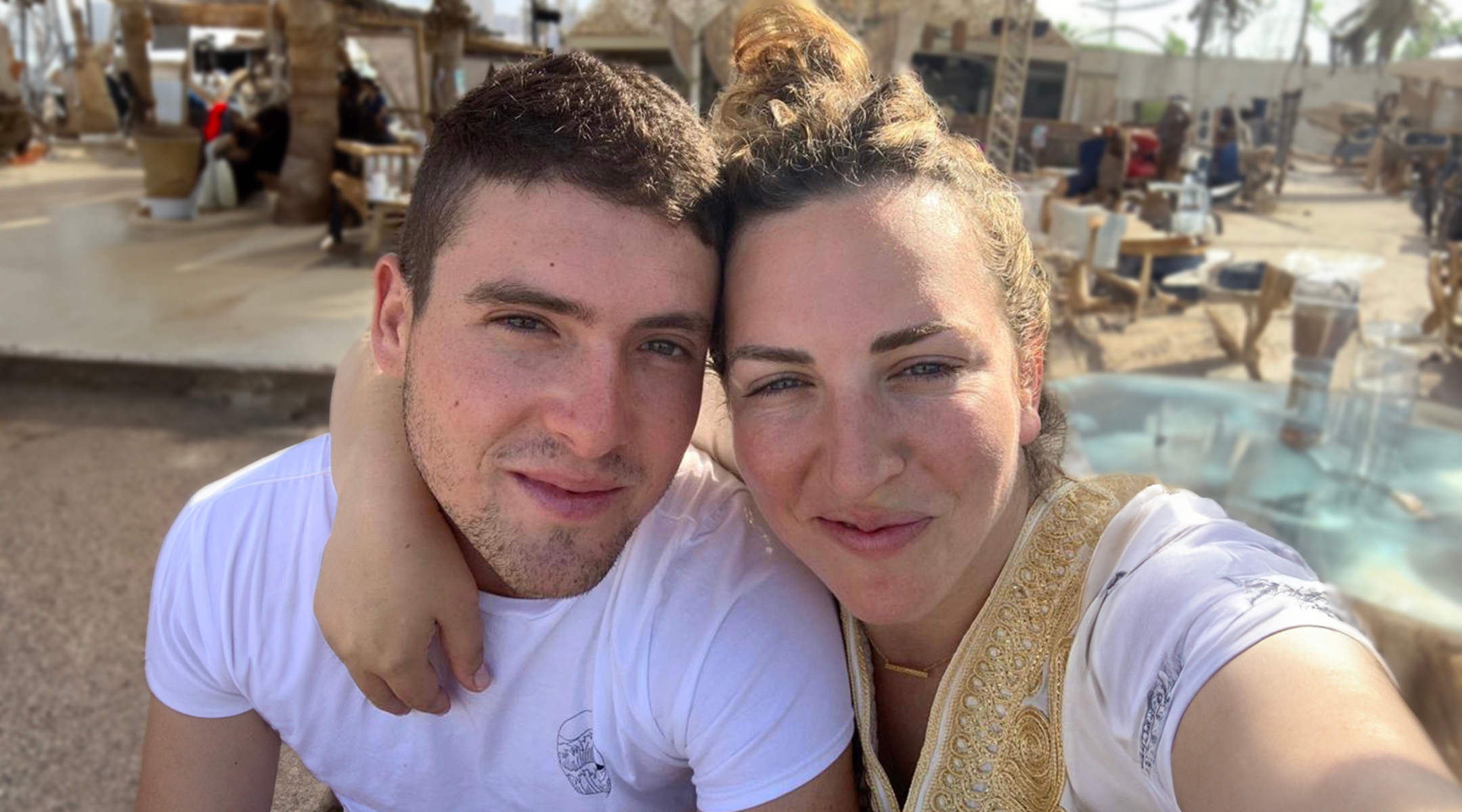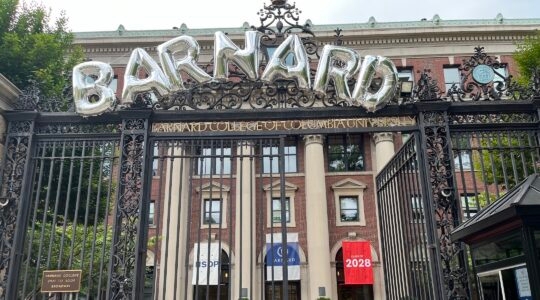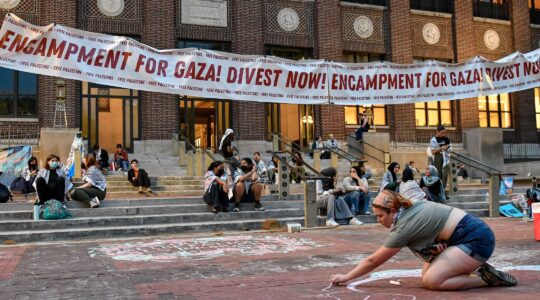(JTA) — When Morielle Lotan learned that her nephew, Addir Mesika, had sacrificed his life to save others during Hamas’ Oct. 7 attack on Israel, the consultant to climate tech startups and investors said she was nearly paralyzed with grief.
“I wanted to shut my company down and not do another day of climate work,” Lotan said. “I felt like, ‘Why am I trying to make this to save the world if it’s not a world I want to raise my kids in?’”
But that feeling was soon replaced with determination to deal with her pain and anguish through action.
“I needed to find the biggest possible challenge to rally behind for the rest of my life,” she said.
Now, Lotan has landed on what that should be: a high-stakes competition to find tech solutions to fight antisemitism. This week, she launched the first phase of the ADIR Challenge, created in collaboration with another Israeli-American entrepreneur, Shay Hershkovitz, and with the support of major Jewish nonprofits in the United States.
The $1 million-prize competition, named in honor of Lotan’s nephew, aims to bring the energy and mindset of Israeli startups to the nonprofit world, where initiatives focused on antisemitism have proliferated as reports of antisemitic incidents have spiked in recent months and years. Nonprofit organizations spend tens of millions of dollars every year on efforts to fight antisemitism.
“The disruption that’s needed isn’t just the disruption of using tech and innovation to combat antisemitism and hate, it’s also disruption within the more conventional organizations that have been the ones responsible for thinking of how to deal with it,” Lotan said.
Hershkovitz, already a friend and frequent collaborator, had worked as the head of research for XPRIZE, a public competition designed to spur innovation in fields ranging from space exploration to medicine.
“I’m a big proponent of competitions, open innovation, crowdsourcing, and I thought, ‘We haven’t really used this approach in the context of what troubles the Jewish people. Where is technology?’” he said. “This is the Startup Nation and we’re not using the thing we’re known for.”
Their project comes amid growing concerns that new technology could be exacerbating the problem of antisemitism. Experts have been ringing alarm bells, for example, about how generative AI tools, such as OpenAI’s ChatGPT and Google’s Bard, could end up amplifying antisemitism because they reflect the biases embedded in society at large.
Aiming to eventually turn the ADIR Challenge into an annual event, Lotan and Hershkovitz formed an eponymous charitable foundation. Seed funding for the projects came from UJA-Federation of New York, which gave a $250,000 grant. (Fundraising is ongoing.) The Anti-Defamation League was brought in for its research on hate and antisemitism and the USC Shoah Foundation for its record of creating content around the issue.
The prize’s $1 million payout puts it on par with the Genesis Prize, an annual award known informally as the “Jewish Nobel,” recognizing prominent Jewish individuals for achievements in their fields. This year’s Genesis Prize, awarded last month, honors organizations aiding the families of hostages taken into Gaza on Oct. 7. But the ADIR Challenge is different in that it is a competition, requiring participation in a process that will be designed to vet ideas and technologies.
Lotan and Hershkovitz take inspiration from XPRIZE, which was launched in the 1990s with a $10 million award to develop the first spaceship by the private sector. Since its founding, XPRIZE has expanded with an array of competitions focused on environmental danger, medical automated diagnosis, literacy and other issues. Elon Musk is funding a $100 million XPRIZE competition for technologies to remove carbon dioxide from the atmosphere. The most recent XPRIZE was launched in November with a $101 million competition focused on anti-aging technology.
A recent report by the XPrize Foundation claims that the impact of the competitions has included significant technical advancements and increased financial investments in solutions to global problems.
Events organized around technology have proven successful for at least two Jewish groups recently: a Jewish day school in Brooklyn hosted a teen hackathon to support an Israeli food bank, and Nevo Network, an organization serving new immigrants to Israel, held a hackathon to aid the country in its recovery from Oct. 7.
Though distinctly more structured and ambitious than a hackathon, the shape of the ADIR Challenge hasn’t yet been fully determined. At this stage, the ADIR Challenge is asking the public to propose ideas that will inform the focus and format of the project. Winning proposals from participants in three age categories — high school, college, and beyond — will each receive $10,000 and be invited to compete in the official event later this year.
“The fight against antisemitism demands innovation, partnership, and bold approaches,” said Robert J. Williams, the executive director of the USC Shoah Foundation.
The competition wouldn’t be the first time technological solutions for combating antisemitism have been proposed or implemented. At least two different initiatives, for example, have created systems to detect and report antisemitic posts on social media platforms. Hershkovitz, meanwhile, said he could think of a few directions for projects, including making people who post antisemitic content face real-world consequences or tackling the growing problem of antisemitism in the gaming world.
But, he added, the point of the ADIR Challenge is that no single person or group can come up with the best solutions in a vacuum. Radical breakthroughs can be achieved, he hopes, by participants operating under the microscope of experts and driven by their sense of competition to generate measurable outcomes.
JTA has documented Jewish history in real-time for over a century. Keep our journalism strong by joining us in supporting independent, award-winning reporting.






